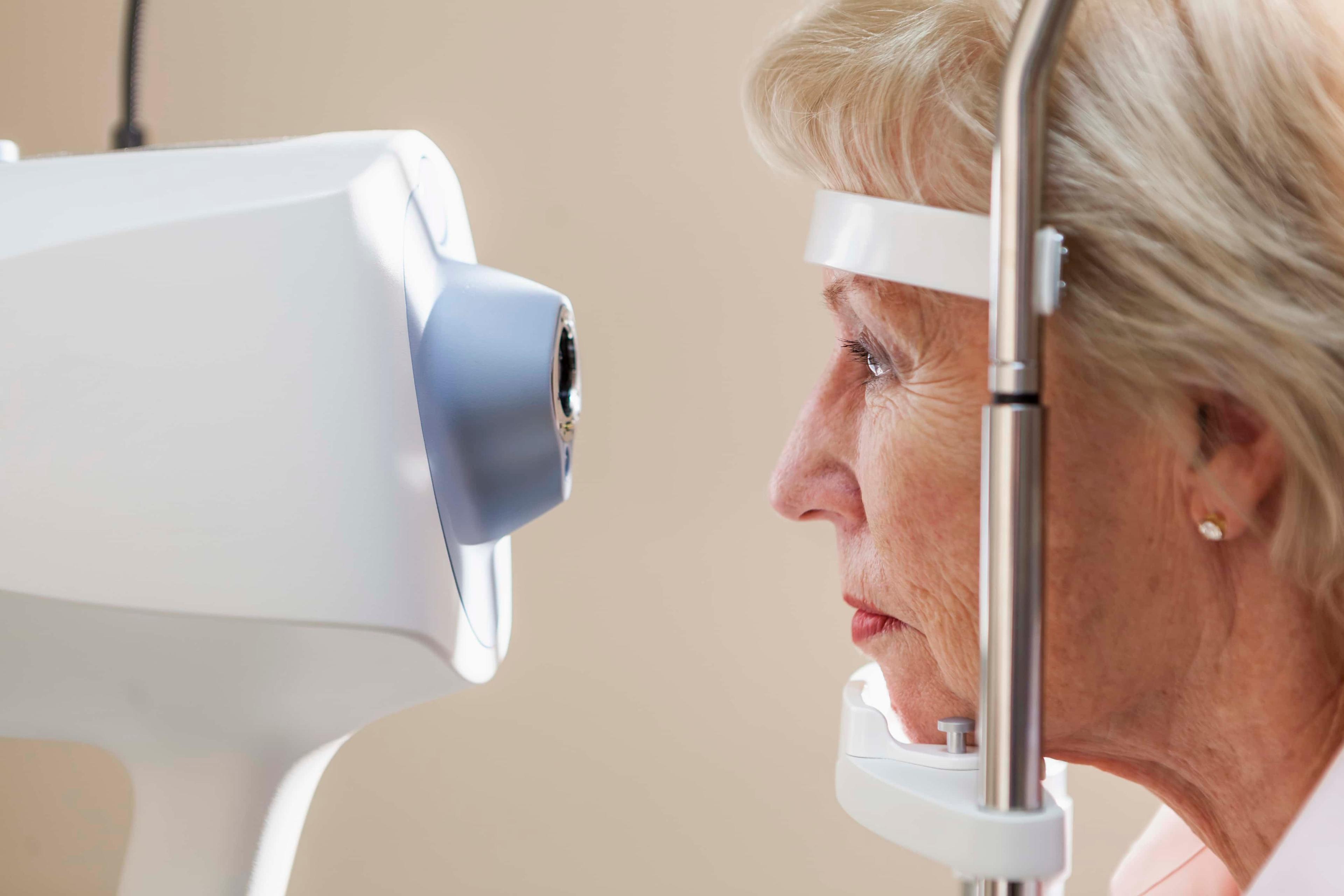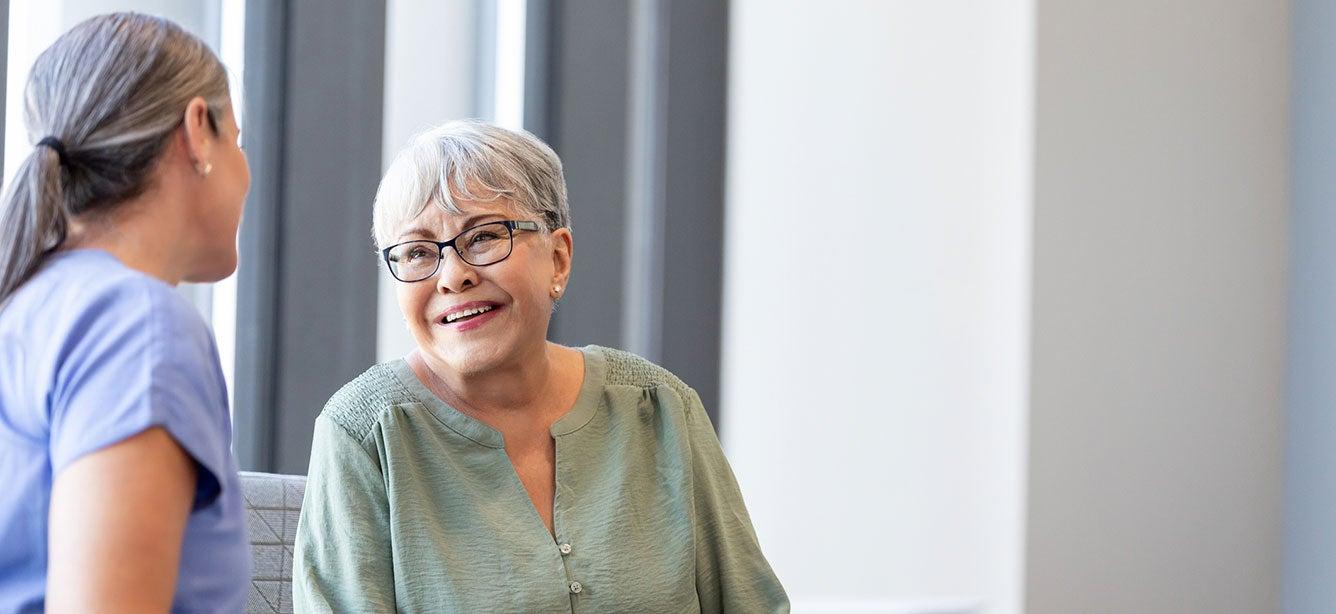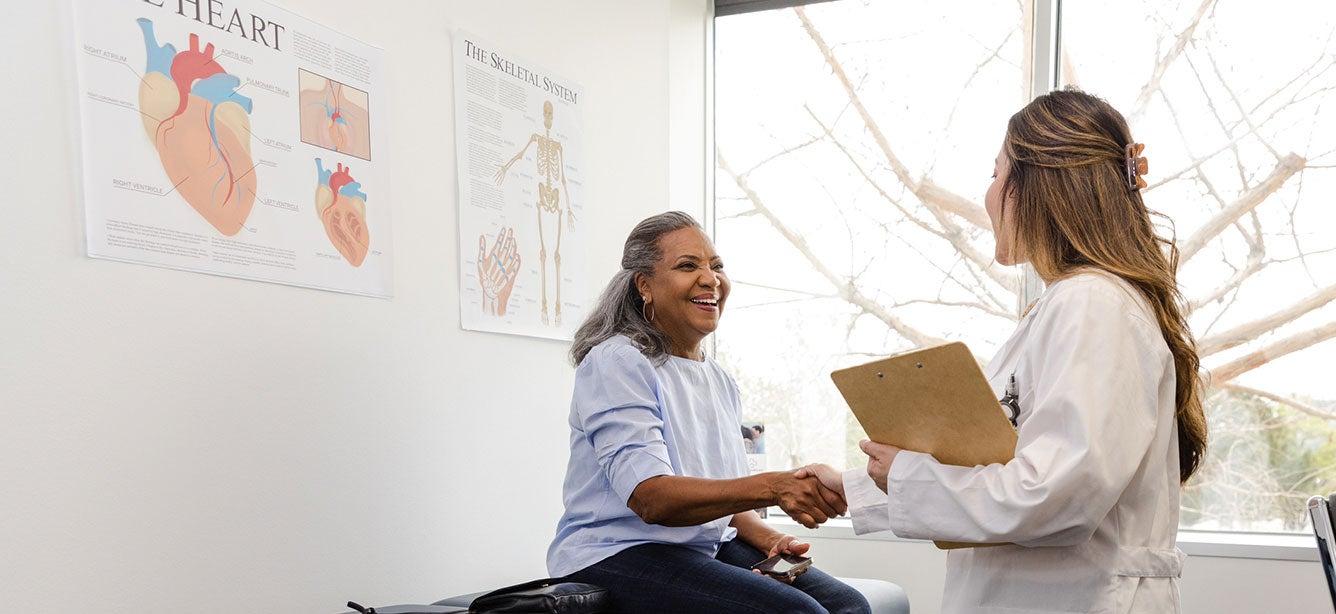Enhancing Your Work with Adults with Vision Loss: A Provider Toolkit
6 min read

Everyone wants to maintain independence for as long as possible. You can play a vital role in promoting independence as you work with clients facing the additional challenge of blindness or low vision.
Offering proactive support is an important way to help clients as they complete more complex activities, whether that be new client paperwork, or daily living skills such as medical compliance (including the use of prescription medication), healthy meal preparation, personal grooming, mobility, and so much more. When assisting an adult with vision loss, it’s best received when it’s offered verbally, and a client feels that they can easily accept support or politely decline it.
Information on the best ways to provide support and related etiquette are part of the Service Provider Toolkit created by the Aging and Vision Loss National Coalition (AVLNC). The toolkit identifies the multiple impacts of vision loss on service delivery.
- Gives an overview of vision loss in the US and prevalence
- Can help you identify vision loss, and learn more about common eye conditions, including those leading to vision loss
- Includes Images to simulate what your clients may see with specific eye diseases (and the resulting type of vision loss)
- Offers useful tips for working with adults with blindness and vision loss, including blindness etiquette
Additional Toolkit topics include:
- information when guiding an individual who is blind
- Removing barriers in facilities
- Providing access to programs
- Adaptive recreation, leisure, sports,
- Self-advocacy
- Sources for additional information
- Ways your organization can connect to information about vision loss, and provide clients with crucial national and local training, resources, and support
A specialized understanding of the unique needs faced by clients with blindness and low vision helps provide vital support, enhance client interactions, relationships, and care.
According to the National Eye Institute’s strategic plan, Vision for the Future 2021–2025, Vision loss and blindness are a leading cause of disability in the United States. By the age of 65, many older adults have vision loss, including some form of vision-reducing eye disease. The most common eye diseases causing vision loss are age-related macular degeneration, glaucoma, cataract, and diabetic retinopathy. As a result, many of the clients you support face vision loss, and it is sometimes hard to identify the level of vision loss and negative impacts on the people you support.
Individualized care plans are optimized when they reflect clients’ vision loss.
Every plan for every older person will see improved outcomes when vision loss is identified and accommodations are included in treatment, whether it be in home health, residential services, hospital and hospital discharge planning, occupational or physical therapy, recreation, mental health services, retirement planning, insurance, legal/guardianship, and all manner of multi-faceted services.”
Helping adults with vision loss feel a sense of control
As with independence, it’s crucial for clients with vision loss to retain a sense of control over their lives. Maintaining independence and control can greatly impact mental health. As you can imagine, experiencing blindness and low vision can be daunting and emotionally challenging, regardless of one’s age and the severity of vision loss.
As we work with adults with vision loss, if a client seems to be struggling with increased fear, or anxiety, in addition to mental health referrals, your local vision rehabilitation agency may offer support groups that help people adjust to vision loss—both recent onset and loss that progresses. Isolation is increasingly common for people with significant vision loss so encouraging clients to maintain social connections and increase their social interactions is also crucial to their mental health.
The Aging and Vision Loss National Coalition (AVLNC) is also working to ensure that all older people receive high quality, comprehensive specialized vision rehabilitation, including low vision services. Vision rehabilitation services and training can provide profound, and life-changing benefits across all areas of life, including:
- Low vision exams – A low vision exam or consultation with a vision rehabilitation agency can quickly assess the challenges an adult with vision loss faces. Training, devices, home modifications, and other skills can help adults accomplish crucial daily activities to improve their safety, confidence, and quality of life.
- Daily living skills training helps people with vision loss learn or relearn safe and efficient ways to manage all activities of daily living, including home care, shopping, cooking, personal care, medical compliance, finances, and more
- Orientation & Mobility training helps clients safely and confidently navigate their surroundings —in home and work settings, and when travelling to your location, accessing public transportation, navigating your facility, and other public spaces
- Assistive technology training helps individuals connect with the world through adaptive devices and aids such as smart devices, specialized accessibility apps, screen readers, magnification software, text to audio software, braille keyboards and displays, and more.
- Vocational rehabilitation: adults are working later in life, and vocational rehabilitation helps adults with vision loss thrive in an existing position or transition to a new one.
- Support groups and other types of counseling and support can positively impact mental health and wellness.
Access to vision rehabilitation services is just a call or click away. Visit Time to Be Bold to locate vision rehabilitation services and other crucial resources in your local area. Speak with someone at the APH hotline for support, explore practical coping strategies for everyday tasks, engage in remote discussion groups, and access free online resources at the APH Connect Center and VisionAware.
Resources
Download the Service Provider Toolkit. Learn more about the Aging and Vision Loss National Coalition (AVLNC), VisionServe Alliance and the Big Data Reports for adults 65+.
Articles for Professionals: Enjoy additional vision-related and vision rehabilitation articles in this professional series:
- How Referring Older Adults to Vision Rehabilitation Can Strengthen Their Medical Care
- Identifying Undiagnosed Vision Loss in Older Adults
- How to Connect Older Adults to Life-Changing Vision Rehabilitation Services
- Common Age-Related Eye Diseases: What to Know and What You Can Do
- Helping People with Blindness and Vision Loss Continue to Participate in Everyday Activities
Articles for Clients, Families & Added Caregivers: Provide clients with links to these National Council on Aging vision-related and vision rehabilitation articles for people with vision loss, their families, and caregivers:
- What Are Vision Rehabilitation Services and How Can They Help Older Adults?
- What Independent Living Skills Help People Living with Vision Loss?
- How Assistive Technology and Adaptive Equipment Help People Living with Vision Loss
- Living Well with Blindness, Low Vision, and Vision Impairment
This project was supported, in part by grant number 90CSSG0048 and 90FPSG0051 from the U.S. Administration for Community Living, Department of Health and Human Services, Washington, D.C. 20201. Grantees undertaking projects under government sponsorship are encouraged to express freely their findings and conclusions. Points of view or opinions do not, therefore, necessarily represent official Administration for Community Living policy.




